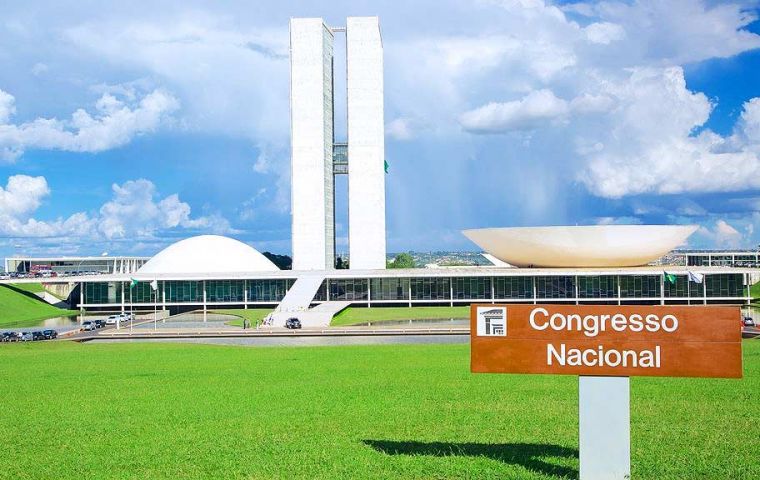MercoPress. South Atlantic News Agency
Brazil: Temporary tax on the super-rich enacted
 Lula's measure must be approved by Congress within 120 days or be dropped
Lula's measure must be approved by Congress within 120 days or be dropped Brazilian President Luiz Inácio Lula da Silva Monday enacted a provisional measure (MP) providing for the collection of taxes of between 15% and 20% on exclusive funds with a single shareholder, Agência Brasil reported.
The measure would affect some 2,500 people and yield incomes to the Treasury in the amount of R$ 756.8 billion (some US$ 154.36 billion) which would be tantamount to 12.3% of the funds in the country.
Although there is no minimum investment limit, it is estimated that investors in this type of fund should have a minimum net worth of R$10 million, since maintenance costs can add up to R$150,000 per year, which is why they are known as funds for the super-rich, Agência Brasil also explained.
As an MP, the text has immediate validity but must be approved by Congress within 120 days or be dropped.
Also Monday, Lula signed into law a readjustment in minimum wages and an extension of exemptions to personal income tax (IRPF).
Finance Minister Fernando Haddad also defended the measures to tax funds and investments abroad. According to him, there is no sense of “revenge” against the richest, but a perspective of establishing social justice and a more balanced tax system. In addition, Haddad said that the initiatives are in line with legislation in more developed capitalist countries in Europe, North America, and also in South America.
“We're looking at the OECD [Organization for Economic Cooperation and Development] countries, we're looking at our more developed, better organized neighbors like Chile, Colombia. We're looking at the United States, we're looking at Europe. We're looking at best practices from all over the world, and we're trying to figure out what makes sense from a social justice point of view, and we're tentatively getting closer to that. There is no other feeling here than that of social justice,” he said.
The tax on the super-rich will be levied twice a year, unlike the current system in which the tax is levied only on redemptions. Those who choose to start collecting the tax in 2023 will be taxed at a rate of 10%. The Economic Zone expects to collect R$ 24 billion between 2023 and 2026.
In addition to the MP, the federal government has announced that it is sending a bill to tax income held abroad through so-called trusts (a foreign company that outsources the administration of a group or family's assets) and offshore companies (investment companies abroad). These taxes were included in the text of Provisional Measure 1.172/2023, on the readjustment of the minimum wage, but were withdrawn after the highlighted vote last week, amid resistance from Members of Parliament. The government argued that the tax would serve to cover the tax waiver with the correction of the Income Tax table, which raised the contribution floor.
To overcome the impasse, the government reached an agreement with party leaders and decided to transfer the issue to the bill, which has now been announced. In addition to R$10 billion in annual revenue from 2024 onwards, R$3 billion will be raised this year to finance the expansion of the exemption band, according to the forecasts presented. (Source: Agência Brasil)




Top Comments
Disclaimer & comment rulesCommenting for this story is now closed.
If you have a Facebook account, become a fan and comment on our Facebook Page!